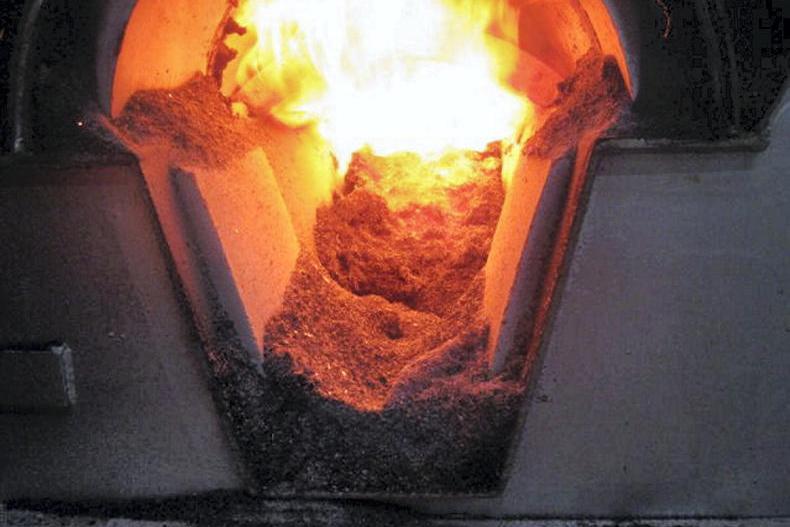James Murphy, the IFA Renewables chairman has welcomed the news that a Support Scheme for Renewable Heat (SSRH) will be introduced, but expressed the need for such a scheme to be put in place as soon as possible.
“The sector has been waiting a long time for this announcement and it is very welcome to now have greater detail on the types of supports and the tariffs that will be available to commercial heat users under the scheme.
“However, if we are to make a meaningful contribution to meeting the 2020 renewable heat targets, the scheme must be operational in the first quarter of 2018.”
As reported exclusively in the Irish Farmers Journal, the scheme will pay businesses up to 5.66c/kWh of renewable heat proven to be used in an efficient way.
Farmers in the pig and poultry industry are most likely to benefit directly from the scheme. For example, a poultry farm with a 900kW biomass boiler heating a 13,000sqm broiler house would receive more than €50,000/year.
However, Murphy has raised concerns that the terms and conditions of the scheme may not be attractive enough to encourage widespread adoption of renewable heat operations within the farming community.
“A properly funding SSRH with an annual budget of €100m is an imperative if we are to increase the energy generated from renewable sources and meet the challenge.”
Murphy added that the scheme “can also reduce greenhouse gas emissions, help Ireland move to a low carbon economy and improve waste management.”
ICSA
The president of the ICSA Patrick Kent has said that the scheme is, "a step along the road towards making renewable energy a central part of meeting climate change targets.
"However there will be disappointment that biomethane injection from anaerobic digesters is not included in Phase 1."
Kent also highlighted the need for the scheme to be implemented as soon as possible and pointed out the importance of the scheme to the farming community.
"In a year where slurry spreading has proved hugely problematic in border counties especially, we have to look at smarter and more efficient ways of handling farm manures.
"We also want to see potential new outlets for farm crops including grass as it is clear that there is little incentive for cattle and sheep farmers to expand output at current livestock price levels."
Read more
Problems continue with RHI audits
A possible hold-up for the RHI?
James Murphy, the IFA Renewables chairman has welcomed the news that a Support Scheme for Renewable Heat (SSRH) will be introduced, but expressed the need for such a scheme to be put in place as soon as possible.
“The sector has been waiting a long time for this announcement and it is very welcome to now have greater detail on the types of supports and the tariffs that will be available to commercial heat users under the scheme.
“However, if we are to make a meaningful contribution to meeting the 2020 renewable heat targets, the scheme must be operational in the first quarter of 2018.”
As reported exclusively in the Irish Farmers Journal, the scheme will pay businesses up to 5.66c/kWh of renewable heat proven to be used in an efficient way.
Farmers in the pig and poultry industry are most likely to benefit directly from the scheme. For example, a poultry farm with a 900kW biomass boiler heating a 13,000sqm broiler house would receive more than €50,000/year.
However, Murphy has raised concerns that the terms and conditions of the scheme may not be attractive enough to encourage widespread adoption of renewable heat operations within the farming community.
“A properly funding SSRH with an annual budget of €100m is an imperative if we are to increase the energy generated from renewable sources and meet the challenge.”
Murphy added that the scheme “can also reduce greenhouse gas emissions, help Ireland move to a low carbon economy and improve waste management.”
ICSA
The president of the ICSA Patrick Kent has said that the scheme is, "a step along the road towards making renewable energy a central part of meeting climate change targets.
"However there will be disappointment that biomethane injection from anaerobic digesters is not included in Phase 1."
Kent also highlighted the need for the scheme to be implemented as soon as possible and pointed out the importance of the scheme to the farming community.
"In a year where slurry spreading has proved hugely problematic in border counties especially, we have to look at smarter and more efficient ways of handling farm manures.
"We also want to see potential new outlets for farm crops including grass as it is clear that there is little incentive for cattle and sheep farmers to expand output at current livestock price levels."
Read more
Problems continue with RHI audits
A possible hold-up for the RHI?






 This is a subscriber-only article
This is a subscriber-only article











SHARING OPTIONS: